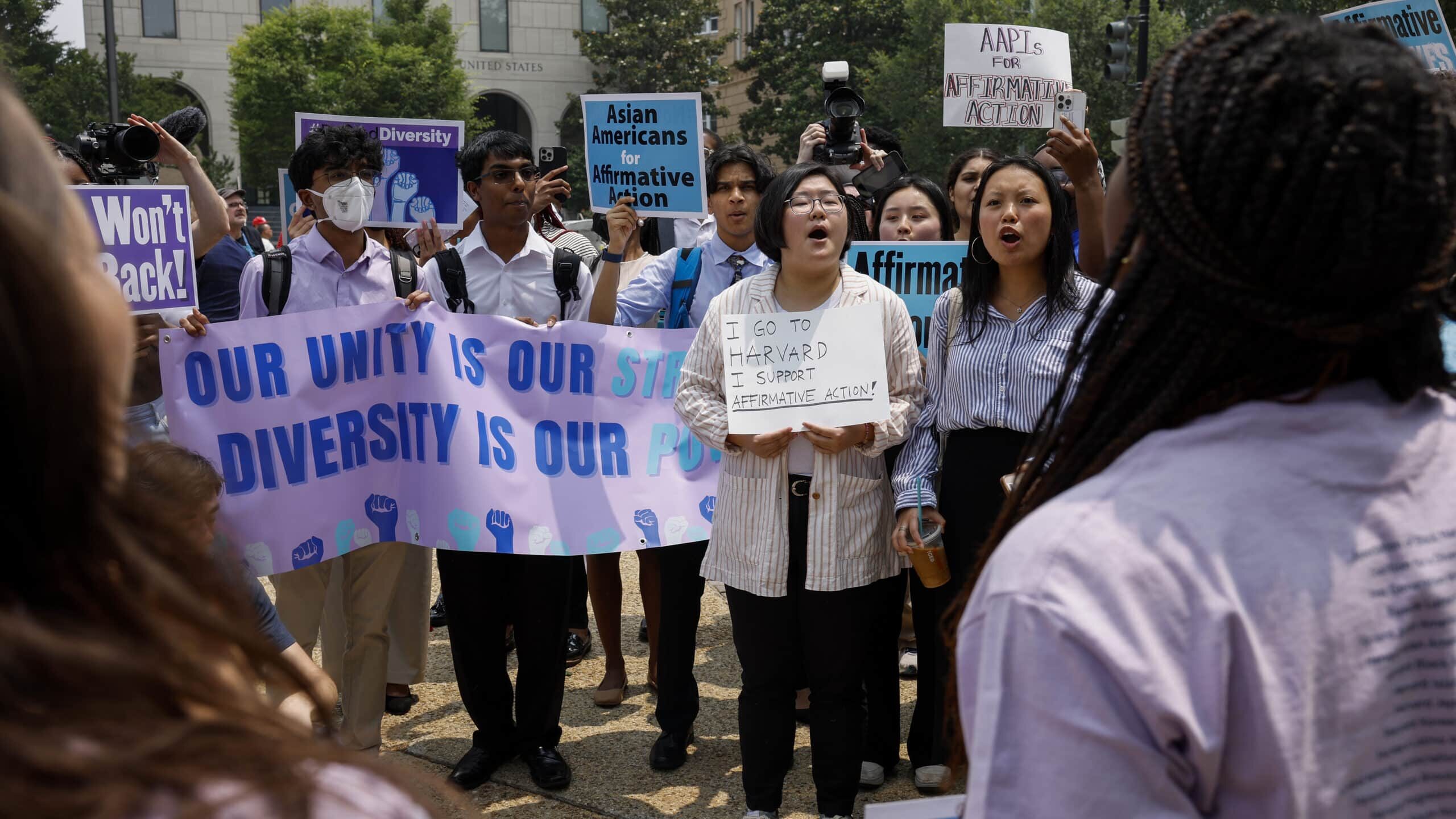In the latest landmark ruling, the now predominantly conservative U.S. Supreme Court has voted to strike down Affirmative Action after hearing cases out of Harvard University and the University of North Carolina at Chapel Hill. The ruling fell at 6-3, with all three of the left leaning justices voting to uphold the policy. Chief Justice John G. Roberts Jr. stated that the program “unavoidably employs race in a negative manner” that violates the Constitution.
Affirmative Action was brought into the conversation in 1961 when then President John F. Kennedy introduced legislation to push the nation towards racial equity. It was solidified into a higher education policy in 1965 during Lyndon B. Johnson’s administration. The policy allows for colleges and universities to consider race as a factor in college admissions, so as to diversify the student body and level the playing field for applicants who had less resources during their high school years.
For decades, predominantly white Republicans have criticized the policy, alleging that it makes it more difficult for white applicants to gain admission into prestigious universities. Misinformation on the policy’s true objectives, and the difference between legacy admissions and Affirmative Action, continues to swirl online amid the Supreme Court’s decision.
Internet Responses
Rep. Alexandria Ocasio Cortez of New York’s 14th Congressional District was quick to explain the policy’s longstanding commitment to dismantling systemic oppression in higher education. Cortez went on to explain that the truly restrictive admissions practice was actually legacy admissions.
If SCOTUS was serious about their ludicrous “colorblindness” claims, they would have abolished legacy admissions, aka affirmative action for the privileged.
70% of Harvard’s legacy applicants are white. SCOTUS didn’t touch that – which would have impacted them and their patrons.
— Alexandria Ocasio-Cortez (@AOC) June 29, 2023
Legacy admissions are students who apply to the same elite colleges and universities that their parents or family members attended, and often continue to donate to. This in turn tends to overlook a student’s academic abilities in favor of a wealthy family’s reputation, thus limiting admissions spots for students from disadvantaged backgrounds.
Amid today’s SCOTUS ruling, conservative influencers continue to claim that Affirmative Action allowed for “reverse racism,” a controversial term that many argue does not exist in a society that systemically benefits the white population.
ADVERTISEMENT
Funny, I thought this was the parody account at first. Racism and reverse racism—It’s all racism. Applications for school shouldn’t even ask your race! Just your SAT scores and high school records PERIOD. Same with jobs both federal and private. Same with military same with…
— Dave Rand (@daverandla) June 29, 2023
Former First Lady Michelle Obama issued a statement regarding the ruling. Obama, who grew up in Chicago and attended Princeton University as a first generation college student, credits Affirmative Action for the opportunities it gave herself and her few fellow Black classmates at an Ivy League institution in the 1980s. Ivy League institutions are notably among the highest percentage of American universities that favor legacy admissions, often at rates two to five times higher than the ordinary student.
I wanted to share some of my thoughts on today's Supreme Court decision on affirmative action: pic.twitter.com/Wa6TGafzHV
— Michelle Obama (@MichelleObama) June 29, 2023
Several Asian-American political commentators and activists remind young Asian students to not fall into the trap of “the model minority myth.” The myth refers to a racially motivated stereotype that East Asian people are always smart in math and science, tend to achieve higher socioeconomic status than other minorities, and are therefore more acceptable in white communities. Today, many encourage Asian American students to learn more about their history, and to not participate in the division being perpetuated among people of color.
It's sad to see Asian students being used to gut Affirmative Action. A reminder that the Model Minority Myth is a tool of white supremacy, not a road to acceptance.
— Olivia Truffaut-Wong (@iWatchiAm) June 29, 2023
Others recognize the potential impacts the ruling could have for medical research in the Black community.
ADVERTISEMENT
The Supreme Court's decision to strike down affirmative action, including in professional schools, like medical and nursing, will have detrimental consequences on Black health for generations to come. This is about life & death for us. Today, we are only 5% of physicians.
— uché blackstock, md (@uche_blackstock) June 29, 2023
Further Political Response
President Joe Biden later voiced his disagreement with the Supreme Court’s ruling.
For decades, the Supreme Court recognized a college’s freedom to decide how to build a diverse student body and provide opportunity.
Today, the Court walked away from precedent, effectively ending affirmative action in higher education.
I strongly disagree with this decision.
— President Biden (@POTUS) June 29, 2023
Justice Kentanji Brown Jackson, the first Black woman to sit on the Supreme Court, voted in favor of upholding Affirmative Action. Her explanation behind her vote is gaining viral traction. Jackson, who grew up in Miami, Florida, attended Harvard University after her school guidance counselor attempted to dissuade her from applying.
The most important part of today's SCOTUS decision, which kills affirmative action in education without actually saying it does, is Justice Jackson's dissent, which is a barn burner from its opening sentences & well worth reading. pic.twitter.com/2n14cbVhdH
— Joyce Alene (@JoyceWhiteVance) June 29, 2023
Protests continue to erupt nationwide today regarding the Supreme Court’s strike down of Affirmative Action. Colleges continue to issue statements regarding their individual stances on the issue.









